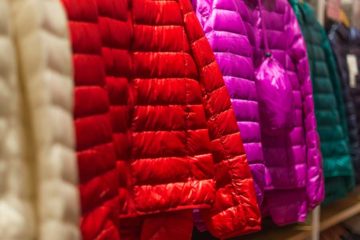10D and 20D nylon are both types of nylon fabric, but they have different weights and properties.
- 10D nylon is the lighter of the two, with a denier of 10. This means that a 9000 meter length of one of the individual yarns weighs 10 grams. 10D nylon is very strong and durable, but it is also very thin and lightweight. This makes it a good choice for ultralight backpacking gear, such as tents, sleeping bags, and backpacks.
- 20D nylon is slightly heavier than 10D nylon, with a denier of 20. This means that a 9000 meter length of one of the individual yarns weighs 20 grams. 20D nylon is still very strong and durable, but it is not as thin or lightweight as 10D nylon. This makes it a good choice for backpacking gear that needs to be more durable, such as packs and shelters.
Here is a table that summarizes the key differences between 10D and 20D nylon:
| Property | 10D Nylon | 20D Nylon |
|---|---|---|
| Denier | 10 | 20 |
| Weight | Lighter | Heavier |
| Strength | Strong | Very strong |
| Durability | Durable | Very durable |
| Breathability | Highly breathable | Less breathable |
| Water resistance | Not waterproof | Not waterproof |
| Cost | More expensive | Less expensive |
Ultimately, the best choice for you will depend on your individual needs and preferences. If you are looking for the lightest possible gear, then 10D nylon is a good option. If you need gear that is more durable, then 20D nylon is a better choice.
Here are some additional factors to consider when choosing between 10D and 20D nylon:
- Activity: If you are doing activities that are likely to put your gear to the test, such as backpacking in rough terrain, then 20D nylon is a better choice.
- Climate: If you are hiking in a humid or wet climate, then 20D nylon may be a better choice because it is less likely to absorb moisture.
- Budget: 10D nylon is typically more expensive than 20D nylon.
